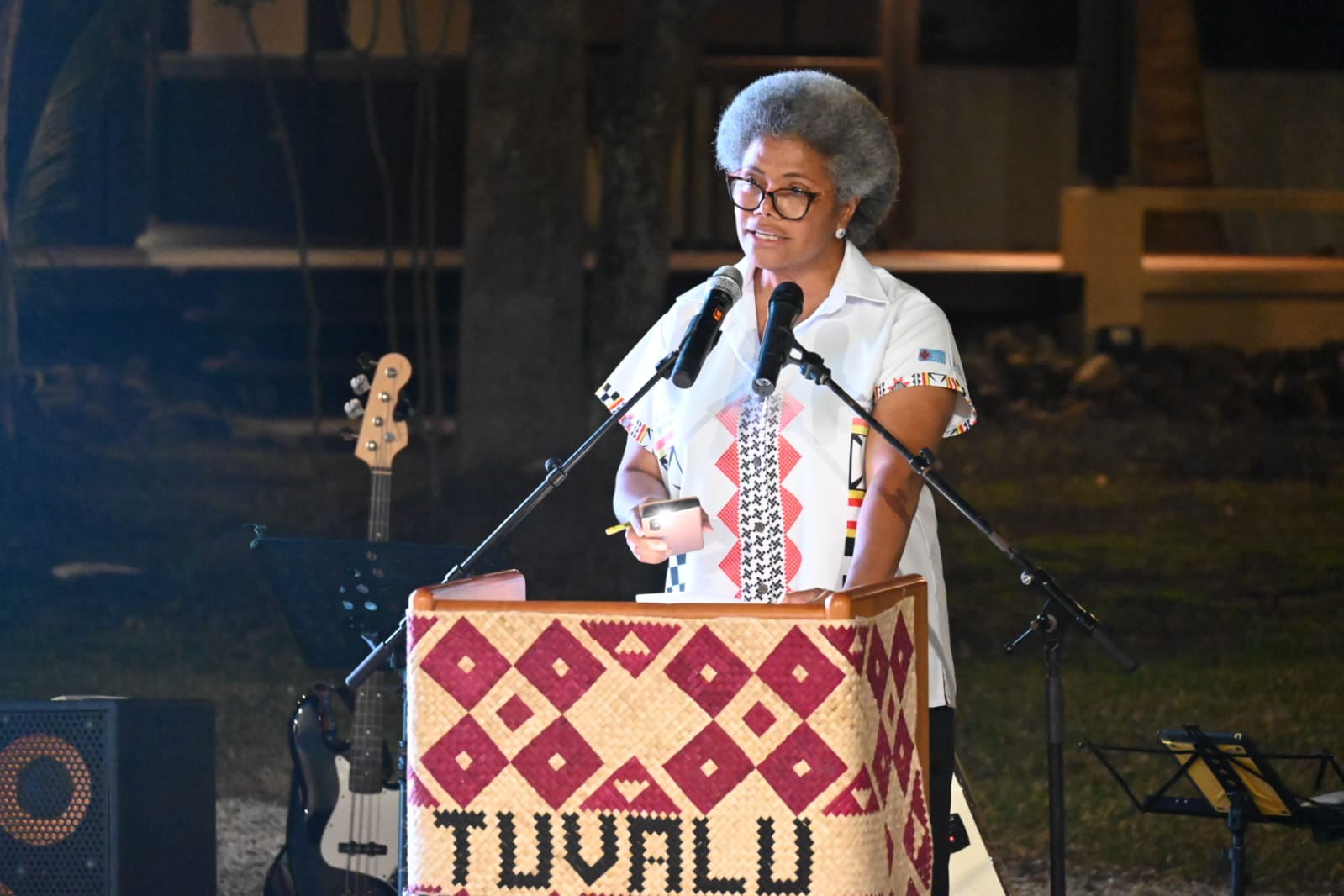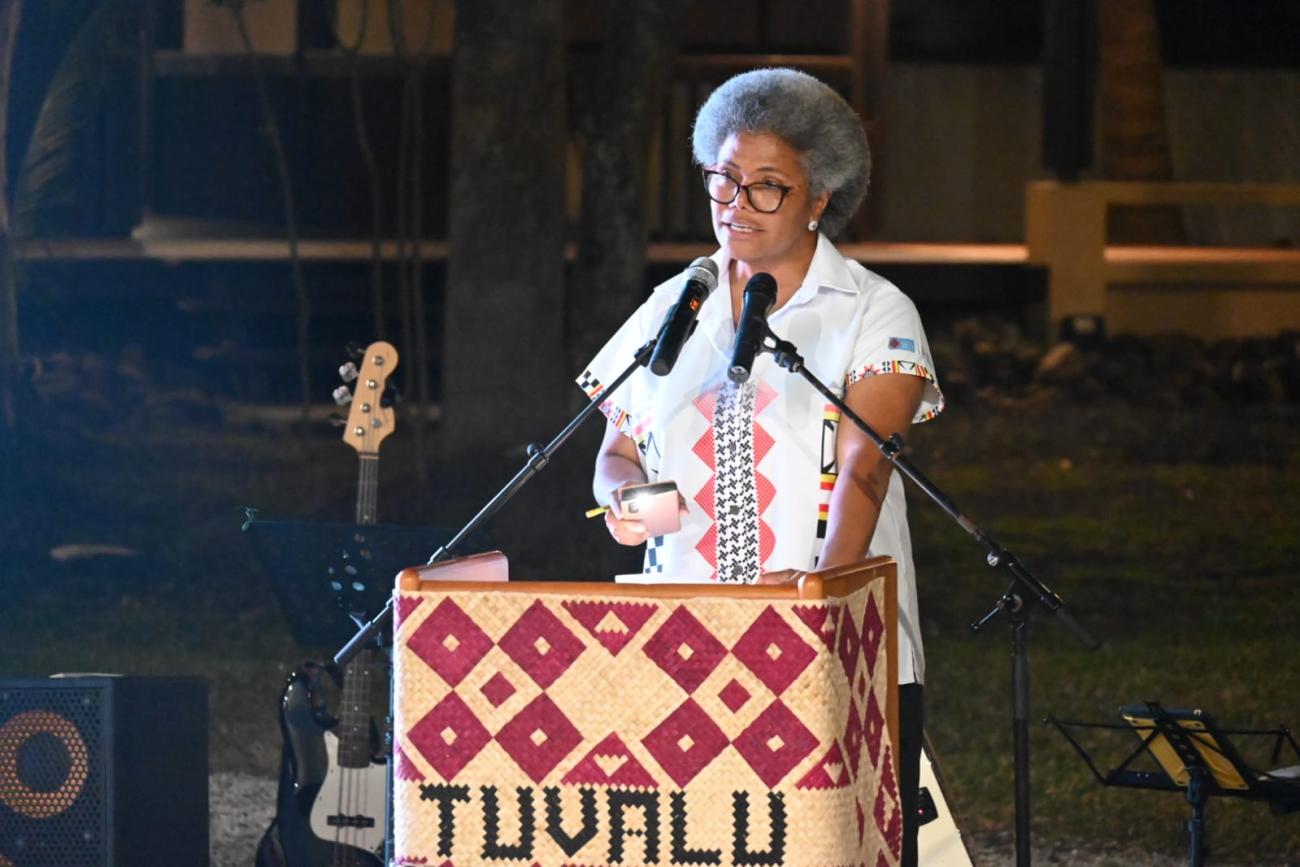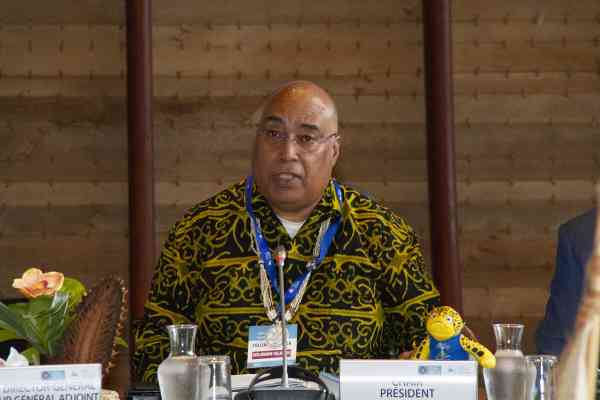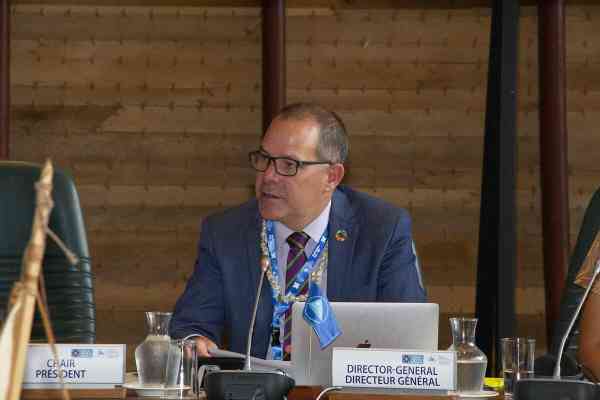(Contenu disponible en anglais uniquement)

The Honourable Panapasi Nelesone, Chair of the 13th Conference of the Pacific Community Honourable Ministers Excellencies Senior Officials Distinguished Guests Ladies and Gentlemen
Ni sa bula vinaka, bonsoir and good evening to you all,
I am pleased and honoured to be here to deliver the dinner remarks after what has been an eventful week for us all. I have really enjoyed being here, and I extend my appreciation to New Caledonia for your gracious hospitality.
I also thank the communications team for thinking of sharing that short video because the most common question I have been asked here is, “Are you the lady from that TV show?”
So vinaka vakalevu for answering that question and also for taking up some of my speaking time so we could get some laughs before I get serious. I acknowledge the SPC Women in Leadership Team and the Pacific Women Lead for our program this evening focused on highlighting the important gender issues on climate change, leadership and on gender based violence.
These are not new issues and we have had interactive sessions on our common challenges as well as the opportunities that we have to continue to promote and strengthen women’s role in the region across all sectors.
As I speak, only 8.5% of total parliamentarians across the region are women. Two out of three Pacific women continue to suffer from intimate partner violence or domestic violence, double the global average. Seven Pacific Island countries experience maternal mortality ratios above the 2030 SDG Target. Women represent over 50% of the fisheries labour force in the Pacific but are primarily unrecognised. The list goes on, but the narrative is clear our Pacific women and girls have been a driving force in the Pacific’s development but are primarily invisible.
The Pacific people that we serve will never fully realize the aspirations of our Leaders if women’s voices and agency are not front and centre. In drawing from our Pacific blueprint, the 2050 Strategy for the Blue Pacific Continent, our Leaders have committed to gender equality and equity and there has been a renewed commitment in the region through the Revitalised Pacific Leaders Gender Equality Declaration (PLGED) that will be tabled to Leaders in Cook Islands next month.
The onus is on us as individuals and the part we play to realize the goals that we have set for ourselves on gender in our regional plans including through the Implementation Plan for the 2050 Strategy and the SPC Strategic Plan. If we do not take ownership of this, then the stark reality of many women in the region will remain the same.
Gender and Climate
As a region we face existential challenges – especially the wide-ranging impacts of the climate crisis which disproportionately threatens the most vulnerable girls and women. It is critical that we work collaboratively.
Together we must work to transform our societies, our States, and our world for the best outcomes for all people, including women and girls. In doing so, we are reminded of the importance of placing communities and their perspectives, at the center of climate discussions and decision-making processes.
Gender-based Violence
Any progress we make in addressing climate change is undone by another crisis we face – the consistently high rates of gender-based violence across our region.
At twice the global average, two in three women in the Pacific face intimate partner violence – which is a violation of human rights that also undermines the ability of survivors to access work, services and other opportunities.
The enactment of Family Protection or Domestic Violence laws is a clear political commitment towards the eradication of gender-based violence in our countries.
Our progress at national level – and collectively as a region leaves a positive mark on our international commitments like the Triennial Outcomes, Pacific Leaders Gender Equality Declaration and its current revitalisation, the Pacific Platform for action, CEDAW and the SDGs. The indelible mark it makes though is on the lives of our people, mostly women and children who look to the provisions of these laws for refuge and for redress.
I am pleased to hear that SPC, across all its divisions, is increasing its focus on gender mainstreaming and the empowerment of women, including ways to address violence against women and children. This is being supported through SPC’s Gender Equality Flagship, and as Members, we have the opportunity to seek technical and funding support from the Pacific Women Lead at the SPC programme.
Women in Leadership
You may have noticed the wonderful new display board outside the library,showing 15 statistics and facts about gender equality – just a snapshot, but enough to give you a sense of why this is a critical issue that all of us need to address.
I mentioned at the start of my speech some of the facts displayed, such as only 8.5 % of Members of Parliament in the Pacific are women. As a region we have the lowest rates of women in national decision-making in the world.
Without women’s voices equally contributing to Parliament, to Government and in other decision-making spaces, how can we truly harness the full potential of our Pacific peoples?
Pacific countries are recognising these issues, and I have been watching with great interest developments for the introduction of special measures – in Samoa and Vanuatu. I am keen for us to learn from these initiatives.
I acknowledge the DG of SPC in recognising Gender Equality programming as a Flagship at SPC. I also commend the work of SPC in putting in place a regional roadmap for Pacific gender statistics with the aim of making the lived realities of pacific women and girls visible through relevant and current data for better informed policy making.
These speak to the recognition that gender equality doesn’t exist in a silo and needs a collective and coordinated approach that is resilient in its approach.
This is what I leave us with today – we have our universal and regional commitments for gender equality. Each country represented here has signed up to at least one or more regional or international commitment on gender equality. What are we doing about these commitments on a national level?
I know it has been a long day for us all and I am mindful of the fact that I am standing in between everyone’s dinner right now, so I humbly thank you for your indulgence.
Vinaka vakalevu


